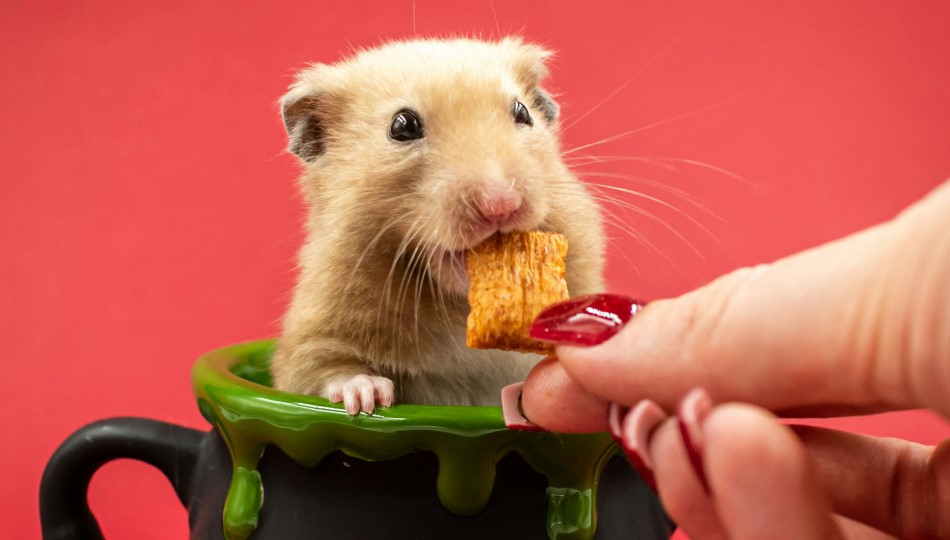Verbastic beasts and how to find them – 10 animal verbs in Polish

Editor

Photo by Nikolett Emmert on Unsplash
related articles
related offers
1. Papugować
comes from the noun “papuga” (parrot), an exotic bird capable of mimicking sounds, and in some cases, even human speech. Therefore “papugować” means to mindlessly echo somebody else’s words.
Parrot’s ability to mimic human speech is so impressive, that you might think that it would be a better bird-related national symbol than an eagle or a stork. Then again, according to the popular myth, storks bring babies, so… Go, Storks?
2. Małpować
from the word “małpa” (monkey). “To monkey” or "to ape" means to mirror one’s actions, movements, or behavior.
This particular word is most commonly used by kindergarten children, when, teary-eyed but absolutely livid, they accuse Jasiu, a fellow artist-in-the-making, of copying their novel fingerpainting idea. You know, Jasiu, copyright laws exist for a reason? No, it doesn’t matter that you are five! – ignorantia legis non excusat!
3. Myszkować
– originating from a cute little rodent “mysz,” “to mouse” means to look into different places, usually in search of something.
This is a word that would describe you when you are looking around the kitchen cabinets, hoping against hope to find a little treat to eat. But – should you encounter a perfect triangle of cheese just lying around on the kitchen counter – beware!
4. Ślimaczyć się
– from the word „ślimak,” „to slime yourself” signifies to move or do something in an excessively slow manner. It also means to "emit a viscous liquid" – but let us not contemplate this particular scenario, aye?
5. Zbaranieć
– related to the word “baran” (ram), “to ram up” means to be surprised by something and not know how to behave.
This is a somewhat baffling connection – after all, rams can be quite aggressive and have been known to cause serious, even deadly, injuries. If rams as a species had an official modus operandi, it would be: “Today I woke up and chose violence.” So, if you see somebody “ram up” – run!
6. Zdziczeć
– coming from the noun “dzik” (boar), “to boar up” means to lose the characteristics of civilized man.
This is what, according to one Polish joke, happened to Winnie the Pooh’s BBF, Piglet, once he returned from the military. He “boared up.”
7. Osowieć
– from the word “sowa” (owl), to “owl up” means to become sad or apathetic. Apparently, more of the Pooh’s gang decided to make an appearance on this list.
8. Zjeżyć
– originating from a „jeż” (hedgehog), when someone “hedgehogs up” their hair, feathers, spikes, etc. become stiff and start to stand out slightly.
This mostly reflects animal behavior but can be applied to humans as well. Although, for humans, it often takes a more metaphorical significance and means “to take a defensive stance”.
9. Chomikować
– another adorable rodent, “chomik” (hamster) graces our list with its presence. “To hamster” in Polish means to keep something in reserve, often unnecessarily.
Hamsters do seem to embody this verb – these little creatures are masters of storing food in their cheeks, in case they need it later. Thankfully, when humans “hamster”, they tend to use more conventional storage places, such as bags or cabinets.
10. Tchórzyć
– originating from “tchórz” (polecat) to “polecat” means to act craven, “to chicken out”. Interestingly, the English phrasing seems to be more adequate, as polecats are many things – but cowards, they are not.
Polecats are part of the Mustela genus, aka weasels, small but fearless predators with a badass rep in the animal kingdom. If you find it hard to believe, you are not the only one. So did this pride of six lions who decided that messing with a honey badger – so a member of the weasel family – sounds like a good idea. As it turned out, it was not this pride’s proudest moment. Perhaps we ought to consider changing the name of a group of lions? The cats involved would probably agree – after all, changing identity is a first step of the witness protection program – and this honey badger already knows where they live.
Conclusion
The number of behaviors the Polish language attributes to animals is significant.
From copycat parrots and monkeys, through resourceful rodents, to fearless (and frankly unhinged) weasels – the Polish language truly is an animal kingdom of verbs. As we discovered in this article, some of those metaphors are more fitting than others. So, next time somebody calls you a “tchórz” – the joke is on them, really. Wear this moniker with pride. Just, not, you know – lion’s pride.
Sources:
Związek Polskich Parków Narodowych – „Nie taki z niego tchórz!”
If you liked this article, you might also enjoy:












